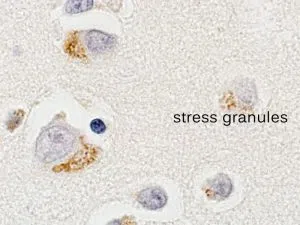A discovery at the University of Saskatchewan could pave the way for research into new drugs that could potentially slow or reverse the course for patients with Multiple Sclerosis.
A research team led by Dr. Michael Levin discovered that nerve cells in the brains of MS patients contain stress granules that appear to contribute to nerve cell death.
The job of the stress granules normally is to protect nerve cells, but these abnormal granules do the opposite. The cause of these abnormal granules isn’t known yet, other than it’s part of the body’s immune response.
The stress granules were discovered in an MS patient’s brain after death, so there still needs to be more testing.
Dr. Levin says though, any new mechanism that can teach researchers about nerve cell damage means they can design medications to reverse it and fortunately already, there is at least one medication that has been shown to reverse stress granule formation.
They will be testing it in the lab in a petri dish, then later in animals and finally in humans.
Dr. Levin says Saskatchewan has the highest occurrence of MS in the country and Canada has one of the highest in the world.


























